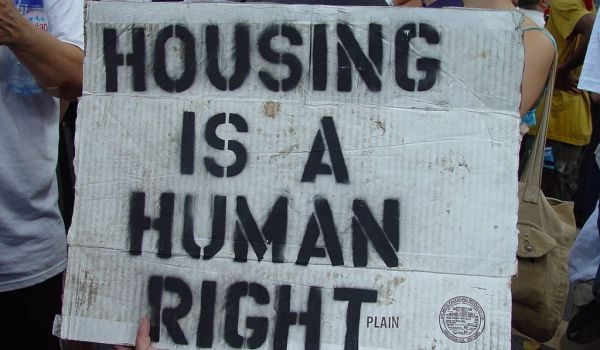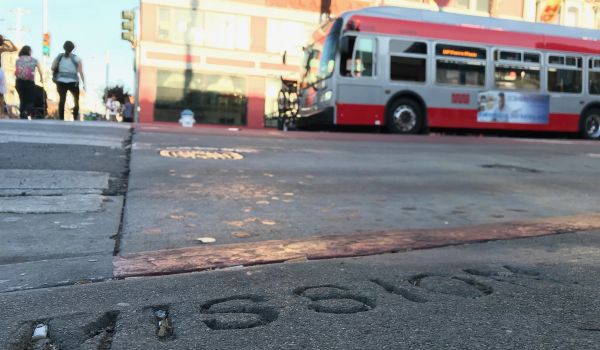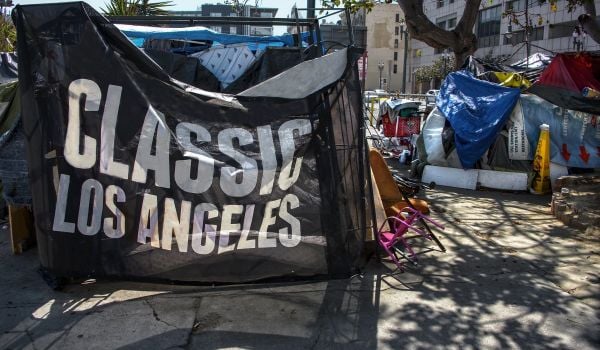Kansas City Voters Approve $50 Million Housing Bond
Kansas City, Missouri, voters approved a $50 million housing bond that will go toward “rehabilitation, renovations and construction” of deeply affordable housing meant for very low-income to moderate income people. Based on the city’s AMI, it will lead to new units to rent for between $550-750, according to KC Tenants Power. According to KCUR, the bond will not raise taxes, as it will replace a previous bond the city just paid off. The $50 million bond will be a one-time injection of funding into the city’s housing trust fund; Kansas City Mayor Quentin Lucas anticipates it could go to building 2,000 units of deeply-affordable housing.
KC Tenants Power, a 501(c)(4) and the political arm of the nonprofit KC Tenants, initially withheld support for the ballot measure until the city council voted to prioritize “deeply affordable” units. After endorsing the measure, KC Tenants Power says it contacted over 20,000 voters to support it. According to the Kansas City Beacon, it was the first major campaign by KC Tenants Power, which was created to do electoral canvassing that KC Tenants is legally unable to do as a 501(c)(3).
Colorado’s Prop. 123 Succeeds, Setting Aside $290 Million Annually For Housing
Last month, I wrote about a ballot measure in Colorado that would set aside 0.1% of the state’s income taxes – amounting to $290 million a year in 2023 and beyond – to build housing. The measure also included a potentially revolutionary financing structure that would allow some tenants to build equity while paying rent. On Wednesday, the ballot measure was narrowly approved, with 50.66% of votes cast in its favor.
This could be huge for Colorado, but a lot depends on how it is implemented. As I wrote in October, much of the “tenant equity vehicle” has yet to be hammered out, and advocates and electeds will now need to tease out the details. The measure also requires counties to opt in to receive the funds, which come with strict requirements: Each jurisdiction that uses the funds must boost its housing stock by 3% and implement a 90-day timeline for approving projects. As the Common Sense Institute cautioned, the state might eventually be pressured to roll back some of these requirements to get more counties to sign on.
Vacant Apartment Tax Passes In San Francisco
Voters in San Francisco and Berkeley passed two separate taxes on rental units that are vacant for more than six months or more. San Francisco passed its measure with 52.66% of the vote; it creates an annual tax for each vacant rental unit depending on square footage, starting at $2,500 for units with less than 1,000 square feet. Money raised from the tax will go to rent subsidies as well as the “acquisition, rehabilitation and operation of affordable housing.”
According to the San Francisco Controller’s office, if landlords don’t fill their current vacancies – an estimated 40,000-plus units sit empty across the city – the tax would bring in $20 million in 2024 and $37 million in 2026. Ideally, however, the tax would not function as a revenue raiser but change the behavior of corporate landlords. Berkeley’s vacancy tax would bring in $3,000 per year for each vacant rental unit in the first year and $6,000 each subsequent year, and it passed with 61% of the vote.
While some argue that landlords have no reason to intentionally keep units vacant due to high property taxes, the math is quite different for large landlords, who can borrow against the equity on their buildings and expand their portfolio, paying off bills and bringing in a profit.
Other Bay Area Ballot Measures
The Bay Area may beat every other metropolitan area for the sheer number of ballot initiatives related to housing this election cycle: KQED lists 21 ballot initiatives in the Bay Area’s nine counties. Yet according to UC Berkeley’s Turner Center for Housing Innovation, there are more initiatives to restrict new housing across the bay than to increase it.
Walnut Creek residents approved a sales tax that would go to homelessness prevention. In Oakland, voters approved $350 million in bonds to go to affordable housing. They also approved Measure V, which creates “just cause” eviction protections for children and educators. The measure also extends eviction protections to people living in tiny homes and in RVs. In Richmond, voters affirmed that rent-controlled units can only see their rent increase by 3% a year or 60% of the Consumer Price Index, which tracks inflation.
In other parts of the Bay, attempts to streamline the construction of new affordable housing fell short: San Francisco’s Measure E, which would streamline the construction of 100% affordable housing as well as teacher’s housing, looked likely to fail as of this writing, with 55% of voters disapproving. It was opposed by several YIMBY groups, who said its affordability requirements were too high, its hiring requirements for construction workers too stringent, that it still required too much administrative review and that it covertly contained provisions that could hold up housing production. A competing proposal, Measure D, was supported by Habitat For Humanity and fast-tracks housing for a wider swath of income levels. But this proposal also seemed likely to fail as of this writing.
This article is part of Backyard, a newsletter exploring scalable solutions to make housing fairer, more affordable and more environmentally sustainable. Subscribe to our weekly Backyard newsletter.

Roshan Abraham is Next City's housing correspondent and a former Equitable Cities fellow. He is based in Queens. Follow him on Twitter at @roshantone.


















